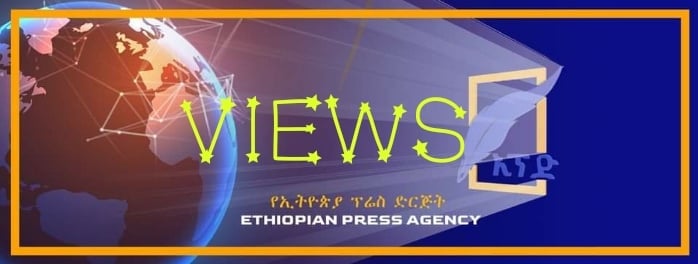
BY JOSEPH SOBOKA
It is an alienable right of Ethiopia to harness the benefits from the Nile River that flows right from her bosom, the source of the Nile. In the wake of twenty-first century, compelled by the demands of electric power and economic initiative, Ethiopia embarked on the construction of the Grand Ethiopian Renaissance Dam (GERD) that will not have a negative impact on the interests of the downstream countries. The endeavor could have been in place a century ago. Yet, due to the illogical pressure put upon the country by Egypt assisted by the super powers, Ethiopia had to forfeit her right to utilize the river. Nevertheless, the alluvial soil that flows along with the river has rendered incalculable benefits to Egypt and other countries, specifically to the Sudan, in the basin.
For precision sake, Egypt’s High Aswan Dam has the capacity of storing 164 BCM, but the GERD can store 74 BCM when comes to completion.
The unfairness of Egypt and Sudan allegation that the GERD will deny the basin countries’ right of utilizing the water can further be refuted by the Nubian Sandstone Aquifer that is located underground eastern end of the Sahara desert covering countries such as Chad, Egypt, Libya, Sudan and all the rest, the bulk of it is found in Egypt. On top of this, Egypt has the capacity to desalinate sea water for many purposes other than electric power. Coupled with that, Egypt has substantial annual rainfall to depend on.
The irony of the case is that the Nile keeps running nonstop, assuring the soil fertility of mainly Egypt and Sudan. In the face of such problem that puts Ethiopia in awkward situation, she has no river that remains in the country; they all speedily flow down to Sudan, South Sudan, Kenya, Somalia and the like. Therefore, building water storage facility is indispensable which will otherwise create and enhance national crisis imminently. No country with the potential it has opts for it.
As a matter of fact, to boost her holistic development, Ethiopia is engaged in maintaining natural balance by intensifying Green Initiative by planting billions of trees for the last three years.
This being the fact, since Ethiopia has literary no share in it, the option left to her is the right to harness the Nile water, her natural gift, for electric power production without imposing any form of negative impact on the interest of any stakeholder country.
The directed accusation brought against Ethiopia predominantly is the river’s flow below the long-term average which is utterly unlikely. Ethiopia should have accused these countries responsible for making agreement in 1959 for entirely leaving out Ethiopia in whose country the Blue Nile begins. The blind verdict or decision reached at that time remains the major flaw in the whole issue.
On the contrary, the construction of the GERD is in view of equitable and reasonable utilization predominantly by Ethiopia, Sudan and Egypt. It is predicted that the completion of the construction of the dam will eventually address the problems of electric power, regional economic growth and collaboration and for peace and security of the countries in the region and the continent at large. The allegation the dam is a threat to the existence of Egypt is unfounded. It rather emanates from selfish motive that unfairly disregards the interest of others.
The excess flow of the Nile to Egypt forced Egypt to build Aswan Dam to control the annual floods on the Nile and prevent the damage that used to occur along the floodplain. The Aswan High Dam provides about a half of Egypt’s power supply and has improved navigation along the river by keeping the water flow consistent. The tragedy of the situation is that when Egypt enjoys the bounteous gift of the Nile extensively, and prosper as a result, Ethiopia dangles in the mire of poverty due to the pressure put on her by international countries that rally behind Egypt.
Now it is the right time for Ethiopia to raise her head up and delve into all the possibilities that will enable her to complete the construction the Grand hydro Dam. As a hydroelectric project, the dam is expected to generate 6,000 megawatts of electricity. It will also give Ethiopia more control over the Nile by creating a 74 billion cubic meter reservoir. The benefit of the dam is not limited to Ethiopia alone. If the three nations are able to reach an agreement on working together on managing the environment such as planting trees, it would have a positive impact on everyone in the region. Sudan would be able to get renewable energy generated by the dam and Sudanese agriculture would benefit from working with Ethiopia to control the flow of the river. The unnecessary and unwise skirmish over the scenario is of no significance benefit to any party whatsoever. No need of flexing muscles for something that cannot be achieved.
The GERD is the new reality that should be based on just and fair deal by the three parties. It should be wisely noted that Africa’s longest river, the Nile, runs through 11 countries. One of them is Ethiopia which contributes about 85% of the Nile water flowing to Sudan and Egypt. The 11 nations are hoping that the massive Grand Ethiopian Renaissance Dam, which is currently under construction, will open up many new opportunities from electric power supply to reducing evaporation losses.
The undeniable fact is that when completed, the dam will have installed capacity to generate 6000 MW electricity to relieve Ethiopia’s acute energy shortage and also export to Sudan and possibly Egypt. The dam can store 74 billion cubic meters of water, about half the volume of the Aswan High Dam in Egypt. The size of the dam is not a threat to Egypt at all. It has been proven within the last three years that Ethiopia’s high rainfall is reliable to contribute to the sufficient flow of water to the basin countries including Egypt.
The source of the Blue Nile, the largest contributor of the water, is in Ethiopia. Yet, Diplomatic concerns include the fact that, for a long time, Egypt and Sudan have believed that they have more right to the waters of the Nile than other countries. The Nile Basin Initiative was set up in 1999 to foster cooperation among the 11 countries that share the river. But its work has been hindered by Sudan and Egypt’s attitude, among other issues.
But the question is that while Ethiopia, of all the 11 countries, should be claimant of the lion’s share, why Egypt and Sudan desire a full control of the Nile. Which international power ascertains this claim unless blind folded?
The crux of the matter is that the GERD is a hydro-power facility. Its storage capacity is far less than the HAD but its efficiency is seamless, be it in power generation or trimming evaporation significantly. A hydro dam should never be feared for the waters must hit turbines, get to the course again and keep flowing downstream. Egypt and Sudan know this very fact. Hence they must get back to the table to negotiate some of the outstanding matters in good faith.
The Ethiopian Herald July 10/2021




